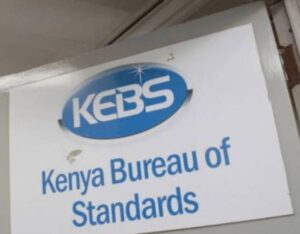
World Bank. Photo | courtesy.
A push by the World Bank could see Kenya’s highest earners pay more in taxes as part of sweeping fiscal recommendations to ease inequality and boost public revenue.
In its latest Public Finance Review, the World Bank calls on the Kenyan government to adjust its personal income tax (PIT) policy by introducing a new top marginal tax rate of 38 percent, up from the current 35 percent, for individuals earning over Sh9.6 million annually.
The proposed tax restructuring aims to ease the burden on lower-income earners while ensuring the overall tax take remains stable.
According to the Bank, the adjusted tax bands would begin at 25 percent for incomes up to Sh2 million, climb to 32.5 percent for those making up to Sh6 million, then to 35 percent for incomes between Sh6 million and Sh9.6 million, before hitting the new 38 percent rate on earnings above that.
“This reform results in a decreased average tax wedge for all earners except those in the top decile,” the review states. The intention is to make the tax system more progressive, without reducing revenue.
ALSO READ: Kenya’s Economic Uncertainty: What Govt Must Do Now
The World Bank’s data suggests that Kenya’s top 10 percent earn more than seven times the average national income, placing them in a strong position to absorb higher taxation.
The organization believes the shift will not only improve tax equity but also promote formal employment and reduce distortions in the labor market.
However, the Bank maintains that the proposed PIT bracket isn’t a one-size-fits-all solution. “This proposed bracket does not necessarily represent the optimal tax structure,” the report cautions, suggesting that further refinements may be necessary based on economic performance and implementation outcomes.
The review also highlights concerns over the rising cost of formal employment for low-income earners, citing recent levies such as the housing fund contribution and the Social Health Insurance Fund (SHIF).
The World Bank recommends that workers earning less than half the national average wage be exempted from these payroll deductions.
“An adjustment to the PIT structure to exempt low-wage earners from the housing levy would also improve progressivity with minimal revenue impact,” the document notes.
By easing the levy burden on the lower end of the wage scale, the Bank argues that Kenya can stimulate job creation and reduce informality.
To balance the books, the report proposes compensating for any lost revenue by slightly increasing contributions from top earners.




